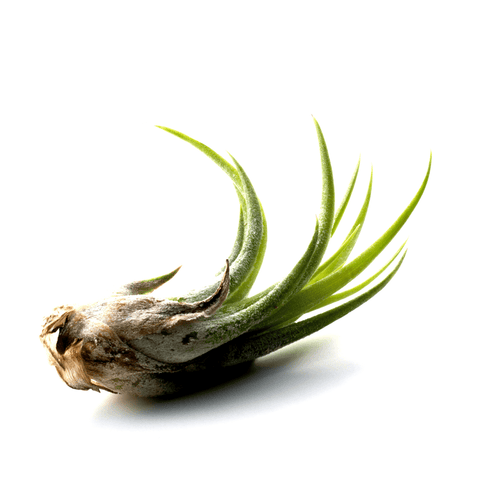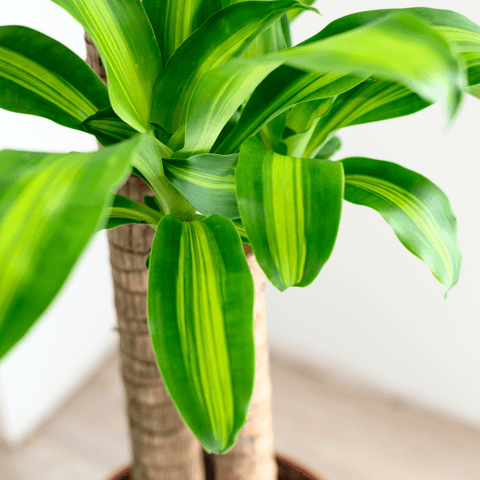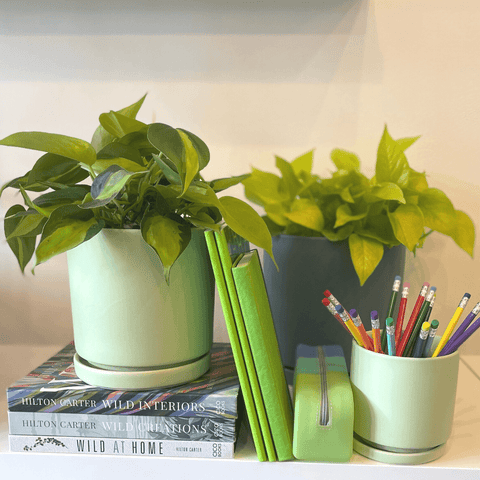What is an Air Plant?
The term "air plant" refers to plants that do not require soil to survive but instead grow on top of other plants, such as trees, without being parasitic. Rather than getting their nutrients from the soil, air plants derive them from the air, water, and debris around them. The term "air plant" is synonymous with the Greek word "epiphyte," which is translated to "on top of plant" (epi = on top of; phyte = plant).
Air plants are known for being easy to grow, they still need attention to survive and live a healthy life. However, if taken care of properly, Tillandsia can live for several years and will even provide "pups" for additional years of enjoyment!
Air Plant Care
The general care rules can be followed for any air plant.
Light
Since air plants are commonly found growing on trees and other large plants below the forest canopy, they are accustomed to receiving bright to medium indirect light. Therefore, avoid prolonged exposure to direct sunlight, which can quickly burn their delicate leaves.
Air plants love being placed in a bathroom or kitchen window (indirect light), and the steam/moisture will keep them happy!
Artificial light can also be a good source, as long as the plants are not too far from the light and receive adequate amounts per day.

Water
Watering air plants looks a little bit different than watering your other houseplants. Most air plants can be watered using a soaking method, where the plant is left to soak in a bowl of distilled water for 20 to 40 minutes every 1 to 2 weeks. However, some air plants prefer regular misting or a quick dunk versus a longer soak. Researching the specific type of air plant will help determine which watering method is best.
Temperature and Humidity
Air plants prefer warm, humid conditions to ensure they do not dry out. Regular household temperatures are fine for air plants; ensure they are not exposed to cold drafts or temperatures in the winter.
Regarding humidity, avoid placing your air plants near heating/cooling vents in your home or rooms with arid conditions. Your plant will thrive with a humidifier placed nearby, or you can grow them in notoriously humid rooms in your homes, such as the bathroom, laundry room, or kitchen.





Comments (0)
There are no comments for this article. Be the first one to leave a message!